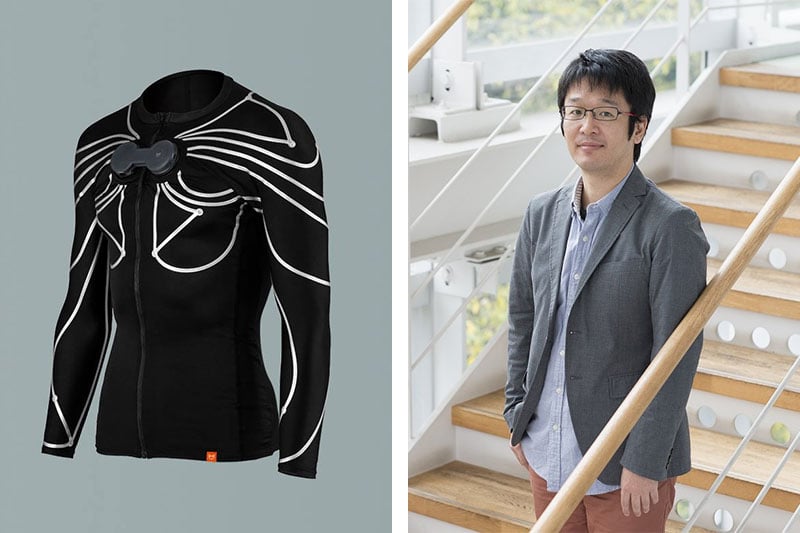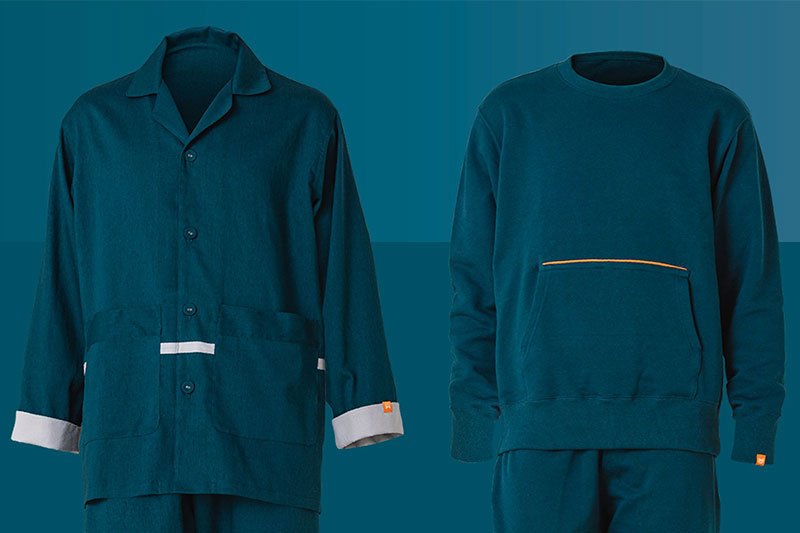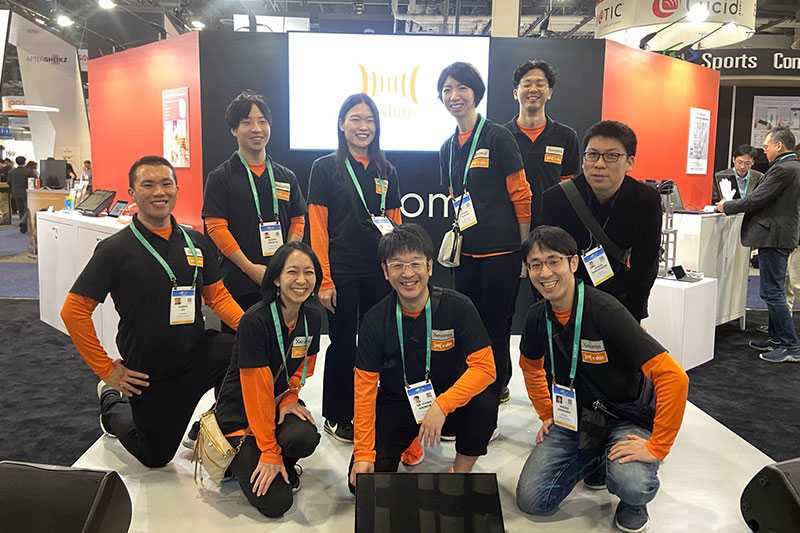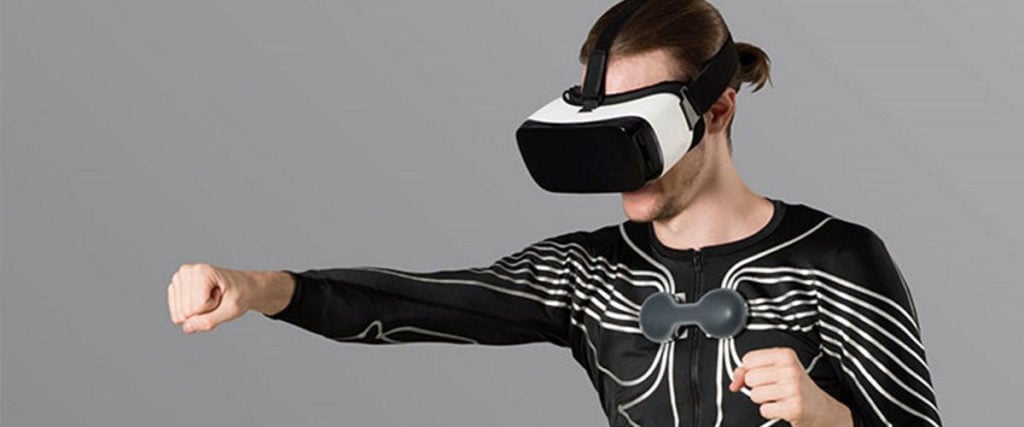A fast-growing trend, smart wearables have now made their way into pyjamas, thanks to Xenoma’s founder and CEO Ichiro Amimori. We met with him to find out more.
Imagine having the ability to track your healthcare data without any external devices. This is what University of Tokyo spinoff Xenoma has come up with via their smart apparel technology known as e-skin. Able to collect and combine healthcare data without the use of any wearables, it integrates your regular clothes with full-time, whole-body sensors, meaning all the info, without the restrictions. “Xenoma means human-machine interface,” founder Ichiro Amimori explains, a name that stems from “xeno,” meaning foreign or strange, and “ma,” which stands for man and machine.

Pictured (Left): Smart apparel technology e-skin, which is integrated into Xenoma’s pyjamas
After graduating from the University of Tokyo in 1994, Ichiro began his career at Fujifilm, working as a researcher for 18 years. The idea for Xenoma came to him after he left to begin working as a freelance consultant whilst studying for his PhD. Rather than seeking out a social problem then venturing to solve it, Xenoma was born out of a desire to bring value to society by putting new technology into practice. “In my case, it wasn’t problem-oriented but seed-oriented,” he explains. “I wanted to utilise advanced technologies which would, in turn, solve social problems.”
You might also like ORII: The Smart Ring that Promises a Future of Screenless Connectivity

While creating a startup typically comes with significant challenges, it was smooth sailing for Ichiro, who admits that he was extremely lucky in his circumstances. As a university researcher, he had ample time to prepare for the launch of his company, which made use of some of the newest technology from his university. Ichiro had noticed a gap in the market for wearable tech, noting that, although smartwatches like Fitbit and Apple Watch dominated the market, they faced fundamental flaws: whilst they can collect an individual’s daily healthcare data, there is no way to implement big data analysis. Ichiro also saw another possibility: to integrate wearable technology into clothing. Putting himself into the shoes of his clients, he reached his eureka moment: “As the last person who would ever wear wearable technology, I thought, ‘Would normal clothing be better for people to be connected to the Internet?’” And so, Xenoma was born. Started in 2015, it now boasts a team of 39 people ranging from designers and scientists to various software, hardware and process engineers.
Although Xenoma has several product lines, most recently it came out with Smart Pajamas, a ‘sleep and lounge’ e-skin which targets the elderly. Japan is facing the problem of a ‘super ageing’ population, and with that comes a larger demand than ever for elderly care. “There are certain people who really want to take care of their own elderly,” Ichiro explains. “So, we thought the elderly might be a big market for smart apparel.” Their answer – Smart Pyjamas – consist of loungewear (for the day) and pyjamas (for the night) that can be used to monitor movements at all times. A distinct feature of their daytime loungewear line is a fall detection function, which can not only distinguish between a trip-and-fall, falling to the front, or a slip-and-fall – a fall backwards which may cause severe head injuries. After detecting and analysing the impact on the ground, a signal is then sent out to caretakers to alert them of the situation. In their sleepwear line, Xenoma has rolled out features such as the monitoring of heart rate, respiration, breathing and temperature, as well as sleep cycle analysis. Their clothing can also be paired with a smart home device and used to control the temperature of the room to suit the user’s needs.

Having conducted trials with dementia patients in Germany, Ichiro realised that the elderly are often wary of wearable tech. Xenoma’s products bypass this reticence, placing a strong emphasis on comfort and ensuring that their smart apparel designs are fitted with sensors that do not interfere with the user’s movements. As such, heart rate monitoring can only be done during the nighttime. “Usually during sleeping, we’re staying very calm, so we can detect and monitor the heart rate,” Ichiro explains. He acknowledges that the data may have small inaccuracies, but maintains that their main aim is to provide comfort: “In a sense, our purpose is not really medical treatment, but to monitor and take care of the elderly. So, the comfort level is much, much more important than that kind of accuracy.”
Xenoma is planning to roll out its Smart Pyjamas line in collaboration with Japanese fashion brand Urban Research, selling them for USD 200 to 300. Plans are already afoot to work with other fashion brands to bring their sleep and loungewear line worldwide. Moving forward, Ichiro hopes to implement healthcare big data analysis, combining it with personal data from his e-skin for optimised solutions. In the future, he predicts, “The words ‘wearable technology’ will be gone because, once the sensors are naturally embedded into the clothing, we won’t have to mention the functions. We are simply wearing clothing.”
Related Articles
MyDoc: Solving Asia’s Healthcare Crisis With Technology?
Dental Tourism in Vietnam: A Growing Trend
HK Tech Startup Platysens Talks About The Future of Wearables





